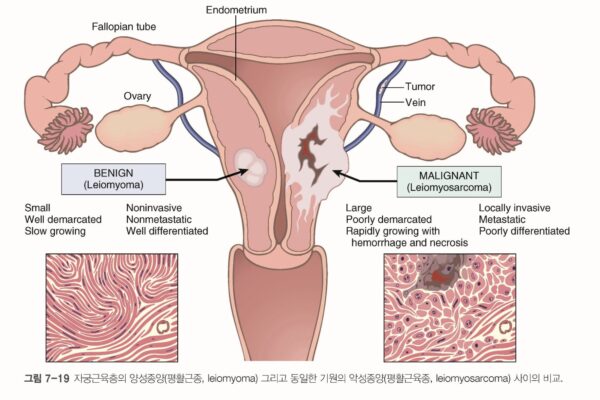Unlock Your Health: 3 Surprising Myths About Digestive Strength and Body Type
Do you often feel bloated, sluggish, or uncomfortable after meals? You’re not alone. For many, the quest for better digestion is a lifelong journey. In traditional Korean medicine, particularly 8-Constitution medicine, a person’s innate digestive strength is a crucial indicator of their overall health.
Certain body types are famously linked with a sensitive digestive system. Among the most discussed are the Vesicotonia and Renotonia constitutions. However, common knowledge about these types is filled with myths that can lead to misunderstanding.
Let’s debunk three major myths about these constitutions and their connection to digestion, giving you a clearer path to wellness.
Myth 1: People with a Vesicotonia or Renotonia Constitution are Always Weak
What comes to mind when you think of someone with a constitutionally sensitive stomach? The common stereotype is a frail, lethargic person with a sad demeanor, no appetite, and chronically low energy. This image, however, is a significant misconception.
This stereotype exists because we often only see individuals with these constitutions when they are patients. They come to a clinic precisely because they are struggling with a major hurdle: poor digestion. Naturally, in that state, they appear weak and unwell.
In reality, many people with a Vesicotonia or Renotonia constitution are bright, energetic, and cheerful, whether they are feeling sick or not. In fact, clinical experience suggests that conditions like depression are more frequently seen in other constitutions, such as the Hepatonia and Cholecystonia types.
The secret for someone with this constitutional tendency is simple: as long as their digestion is functioning well, their other organs rarely cause problems. This is why you might meet someone so vibrant and healthy that you think, “There’s no way they could have that constitution!” Many have a delicate digestive system but have learned to manage it so effectively that they live happy, fulfilling lives. They have adapted to their baseline digestive strength and thrive.

Myth 2: If You Have Poor Digestion, You Must Have a Vesicotonia or Renotonia Constitution
This is a classic case of confusing correlation with causation. If you gathered a group of people suffering from chronic indigestion, a large percentage of them would likely have a Vesicotonia or Renotonia constitution. But this does not mean that poor digestion is an exclusive trademark of these types.
The equation “Indigestion = Vesicotonia/Renotonia Constitution” is false.
Acute indigestion can happen to anyone, regardless of their body type. It can be triggered by stress, overeating, or a single bad meal. When it comes to chronic indigestion lasting for more than a month, the constitutional breakdown from my clinical experience looks something like this:
-
Vesicotonia and Renotonia Constitutions: 50-70%
-
Pancreotonia and Gastrotonia Constitutions: 10-25%
-
Hepatonia and Cholecystonia Constitutions: 5-15%
-
Pulmotonia and Colonotonia Constitutions: 5-10%
As you can see, while the Vesicotonia and Renotonia types are the majority, a significant portion (30-50%) of chronic digestive sufferers belong to other constitutions. It’s a mistake to definitively say, “This person has indigestion, so they must have one of these constitutions.” Anyone can experience a decline in digestive strength when their overall energy is depleted and their stomach is overworked.
Myth 3: Health Issues for Vesicotonia and Renotonia Constitutions are Always Simple
Compared to other constitutions, the health issues of those with a Vesicotonia or Renotonia constitution tend to be more straightforward, but they are far from one-dimensional. The foundational Korean medical text, Donguisusebowon, outlines several ways their core weakness can manifest:
-
Stomach Rejection: The stomach is unable to accept or process food properly.
-
Qi and Blood Deficiency: The body takes in too little food, failing to produce enough energy (Qi) and blood for vital functions.
-
Spleen Qi Sinking: The Spleen’s energy, which should lift and hold things in place, becomes weak and “sinks.” This can lead to various symptoms like fatigue, organ prolapse, and a heavy, dragging feeling.
Furthermore, the problem isn’t always purely physical. For a person with compromised digestive strength, psychological and emotional stress can deeply complicate their physical symptoms. This interplay between mind and body can make their condition intricate and challenging to unravel.
The powerful upside, however, is that the solution often circles back to a single, vital goal: restore the digestion. Once their digestive system is balanced and working efficiently, their other complex issues tend to resolve as well. Improving their innate digestive strength is the ultimate key.
In our next article, we will take a detailed look at the specific digestive disorders of the Vesicotonia and Renotonia constitutions. Stay tuned.
For the original Korean text, visit here.
If you’re curious about the basics of traditional Korean medicine and health, read the following article:
The Truth About 8 Constitution Medicine: A Revolutionary Healing Framework Explained
Key Concept in 8, Eight-Constitution Medicine: Optimal Imbalance (What Constitutional Diagnosis Really Means)
Learn Why Studying JangSang Medicine is Important.
Frequently Asked but Silly Questions (Foods Good for the Liver??)

